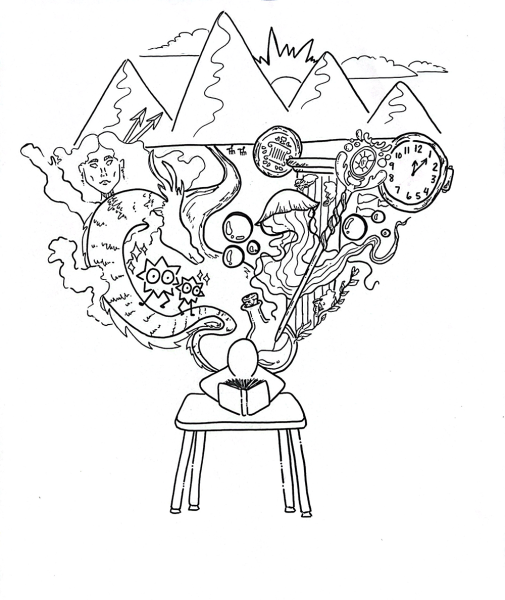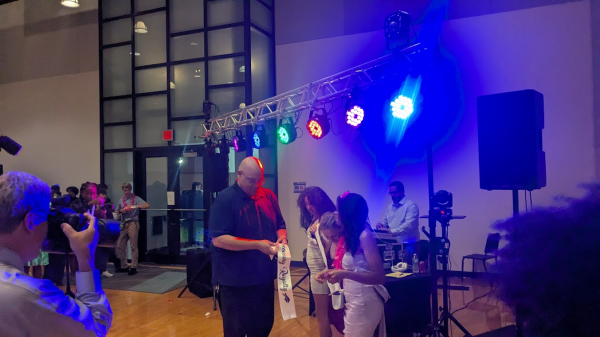A Student Guide to the SAT & ACT
With second semester beginning, juniors are preparing to take the ACT and SAT exams. Here are some tips to help prepare.
Format:
Both exams test topics that students have learned through core classes in school. The SAT has three multiple choice sections: reading, writing and language, math, as well as an optional essay. The test takes three hours with an additional 50 minutes for the essay. Scores range from 400-1600 points.
The ACT, on the other hand, has four multiple choice sections: reading, English, math and science, as well as an optional essay. The test takes two hours and 55 minutes with 40 additional minutes for the essay. The test is scored out of a possible 36 points.
Most colleges accept both tests, and both exams offer seven test dates a year on Saturdays. There are also non-Saturday ACT test dates available for students who have religious obligations.
Test scores are used for college admission requirements and scholarship eligibility.
“…We’ve had a couple students who have been offered full rides based upon their ACT score and the rest of their application,” guidance counselor Jason Downey said.
Even though the writing portion is optional for both the SAT and ACT, Downey says it might be a good idea for some students.
“I think if a student is interested in English or journalism, it can only help them, and I don’t think it would hurt them,” he said.
Laura Robertson, who led the BHS ACT Bootcamp seminars this year, added that the choice to take the writing section also depends on the college that a student applies to.
“Some colleges require it, others recommend it and others do not care,” Robertson wrote in an email. “I recommend students look at the colleges and scholarships they are considering before deciding.”
Choosing Which One
One difference is that the SAT was designed to assess basic reasoning skills while the ACT was originally designed to assess content knowledge.
But the tests have changed over time.
Downey explained that while colleges will take scores from either test, the ACT seems to be the more popular test for BHS students.
“[Beachwood students] prefer the ACT…because it has more science components to it,” Downey said. “Our students really thrive in the sciences, and the SAT is more math and reasoning and more English-based.”
However, Downey explained that both tests are designed to demonstrate each student’s skills and encourages higher level students to try both tests.
He also advises that students use their PSAT score to decide whether or not to take the SAT.
The PSAT helps students prepare for the SAT and also gives students the chance to apply for the National Merit Scholarship if they score high enough.
“..Besides the National Merit Scholarships, I think the PSAT is important because it’s kind of a precursor to what their SAT score could look like,” Downey said.
Junior Sabrina Machtay is preparing to take both tests this school year.
“If I had to choose, I suppose I would choose the SAT just because it’s simpler,” she said. “The subjects tested are … pretty straightforward.”
She added that the ACT tests more advanced math and science.
Both tests offer numerous practice tests and resources. Students can use prep books or the tests’ official websites to prepare.
Studying for the Test
On March 12, all BHS juniors are scheduled to take the ACT during the school day, and sophomores are scheduled to take the pre-ACT. Freshmen and seniors will likely have that day off from school, according to Downey.
Downey recommends that students taking this test should have begun preparing in December, and if they haven’t already, they should start now.
He identified multiple programs that students can use to prepare.
“[Shmoop offers] nice quick online ACT, SAT and AP prep courses…that the school pays for,” he said. “Students can have their own account and save all their practice tests and specific test questions.”
“There are study guides online that students can purchase,” he said. “There’s some that are free, and ACT offers some test prep on their website.”
“College Board offers Khan Academy, and students have access to that to take practice tests,” he added.
Senior Chan Yuh took both the ACT and SAT and explained that taking courses such as AP Lang and Honors English II helped him prepare.
[P]racticing reading and writing in those classes helped me get a pretty decent score without any extra studying.”
Beachwood also offers an ACT Bootcamp, which is a two-day seminar that offers tips and resources for preparing for the ACT.
There will be two more two-session Bootcamps this school year. One will start on January 26, and the other will start on February 3.
“We’ve…had really good success with the ACT bootcamp,” Downey said. “The past three years we’ve offered it at least twice a year…with a teacher who’s skilled in test prep and [the] ACT. A lot of the test prep is [about learning how] to understand the questions, not just the material.”
“…Some students can’t afford $500 for tutoring, so…if we can offer the Bootcamp and Shmoop and integrate some of the curriculum into our [core] classes, [it can help our students],” he added.
Laura Robertson, who led the ACT Bootcamp, explained in an email that studying is an individual process that students must plan.
“It is good to take a practice test early on and determine where your baseline is so that you can come up with a realistic study plan,” she wrote. “For example, PrepScholar estimates that a 2-4 point jump in your score could require 40 hours of studying.”
Robertson also explained the strategies she recommends when studying for the ACT.
“There are many strategies, but the number one thing to remember is to practice and analyze,” she wrote. “Practice lets you work on pacing and stamina. Analyzing what you practice helps you see where your knowledge gaps are, where you are making careless errors and where you might be able to switch up your strategy.”
“There’s no best way of taking the test…it differs for everyone, and you shouldn’t follow…[a prep] book just because the book says so…” Yuh added.
Machtay, who took the SAT in December, began studying with a tutor in September, and she also took a class. She recommends taking practice tests in locations that stimulate a testing situation.
“…I started with a tutor and then I went to a class, but what’s most important is to take practice tests a lot,” she said. “And you have to do it in a place where you have the same distractions that there will be on the test [day].”
Machtay preferred working with a tutor rather than attending a class.
“[Tutoring is] one-on-one, and you get more attention, and…[the tutor] can focus on your problems more, while with the classes…there’s a lot of people and it’s one teacher, and so it’s kind of hard to get the attention you want,” she said.
Test Day
On test day, Downey advises students to pace themselves and use process of elimination.
“…[M]ake sure you answer the ones you know,” he said. “You can feel free to skip over some so you make sure you get all of them done…but you just have to be conscious of your time.”
“…I think a lot of our students complain that they run out of time, but realistically it’s a lot of time.”
“[Some students] get ultra-focused and on one question and spend six minutes on [that] one question, and when you only have 35 minutes for one particular subject, that could really slow you down,” he added.
Yuh suggests picking one letter on the multiple choice section to use when guessing. Sticking with one answer choice when guessing increases one’s probability of getting some guesses right, instead of picking answer choices randomly.
“…[Y]ou can pick a letter for the day, and then when you have some…problems still left and you’re running out of time, just use that letter,” he said.
Machtay advises students to prepare materials beforehand and wear school clothes rather than pajamas.
‘You’ll get really sleepy, and you should instead pretend like you’re going to school,” she said. “Just wear comfortable clothes that you’re comfortable in…”
Robertson recommends that students get their brain moving before the test.
”It starts early, and you don’t want to be waking up through the first test section,” she said. “Do a crossword or [Sudoku] in the morning while you eat breakfast.”
Yuh takes a more philosophical approach.
“People get really nervous and tense up [before tests],” he said. “…What I did [was use]… ‘positive nihilism’…thinking that if nothing matters, [then] this test doesn’t matter…so why worry about it? It’s just a…[test, but] I still want to get a good score…so that’s the mindset I really engrained myself into for taking the test…”
Retaking the Test and Improving Your Score
Students can retake both tests after receiving their scores.
Downey explained that students will get a score report back within 3-4 weeks after taking their test. He recommends utilizing the score report to improve areas of weakness.
“Repetition and practice are really important, and really understanding how to read the question,” he said.
“It is honestly a very individual process. Some students get their dream score the first time while others may want to take it again,” Robertson wrote.
She recommends taking it early enough to leave time to study, retake and improve.
“[The test] is only offered at certain dates during the year, so it is important to plan ahead,” she added.
“I would recommend that you take the SAT and the ACT when you’re a junior,” Machtay said. “In case you don’t get the score that you want, you can retake it.”
Downey points out that a student’s score may also depend on the classes that they have taken.
“…[I]f a student hasn’t done Pre-calc or Algebra II, they’re going to be a little bit weak in some of those areas just because they haven’t been exposed to [the material]” he said. “If you’ve already taken [a test] once and maybe you’re discouraged by your score, wait until you finish the course…because some of that material is in there.”
Machtay discourages over-studying topics that have already been mastered.
“I would definitely recommend using [the testing] website and what they give you to [target areas of weakness],” she said.
After the test, there is an option to order a copy of the test that was taken.
“…[Y]ou won’t get that right away, you’ll get that [delivered] once that test is phased out,” Downey said. “It’s usually about six months after, and you can see your answers and see which ones you missed…”
Other Resources
Machtay recommends the Khan Academy to prepare for the SAT, which is partnered with College Board, so it will take a student’s PSAT or SAT score and create a personalized study plan.
“[The] Princeton Review is very good as well. I also recommend getting the books…that have a lot of practice tests because that’s what’s really important,” Machtay added.
Roberston also suggested using the ACT website for their resources, and recommends a book
called The Official ACT Prep Guide.
“In addition to ACT itself, PrepScholar is a great resource for free articles online. In terms of books to buy, I prefer The Princeton Review’s Cracking the ACT,” she wrote.
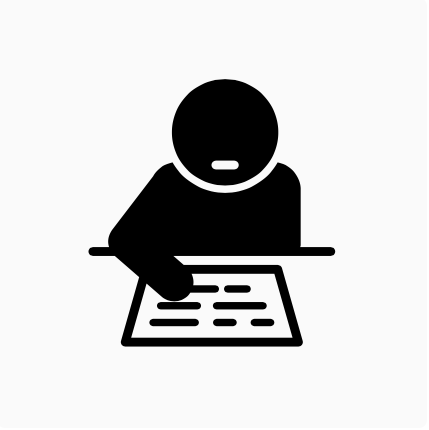
Final Tips
Downey also reminds students not to become over-stressed about test scores.
“I think some of our students get super frustrated if they can’t get those scores to get into Ohio State or Northwestern, but…we try to encourage our students to apply to more than a couple schools and not just try to get the bumper sticker schools…” he said.
He reminds students that they can still be successful even if they don’t get the perfect score.
There are also test-optional colleges that may be the best option for some students to apply to.
“…Some of our students apply to a good mix of schools…maybe not because their test scores are that great, but just because they have more to offer than just their test scores,” he said.
Machtay recommends students understand the structure of the test.
“[You want to be] prepared for how it will go because it’s more of a test of strategy than it really is of your knowledge,” she said.
“Take your preparation seriously,” Robertson wrote. “Your standardized test scores are something you can bring up with studying and practice, and they can open up a lot of doors for you. Sometimes one point can be the difference in significant scholarship money.”
“Take advantage of the free resources out there from ACT, your school, and PrepScholar,” she added. “Take it on as a challenge to self-motivate.”
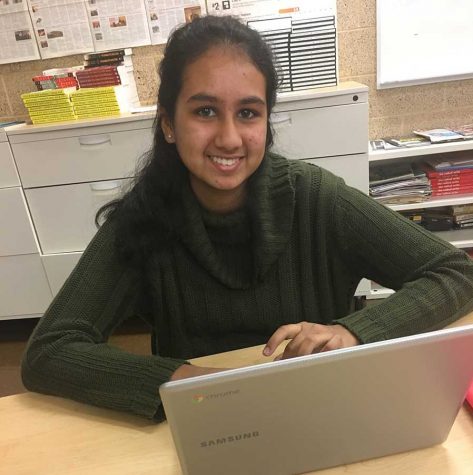
Prerna Mukherjee has been writing for The Beachcomber since the fall of 2016. She covers a variety of school and community events. In her free time, Prerna...








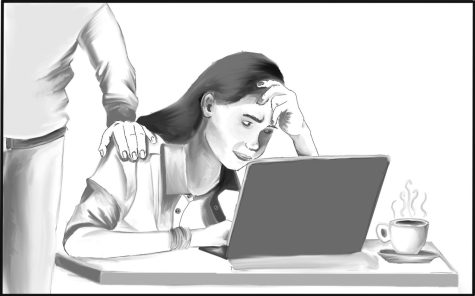
![“My parents have always said that education is important. My parents are Chinese immigrants, I'm Chinese American, [and that's a] value that has always been ingrained in our community,” said Senior Lyndia Zheng, pictured with Tony Zheng](https://bcomber.org/wp-content/uploads/2025/10/DSC_4244-600x400.jpg)


